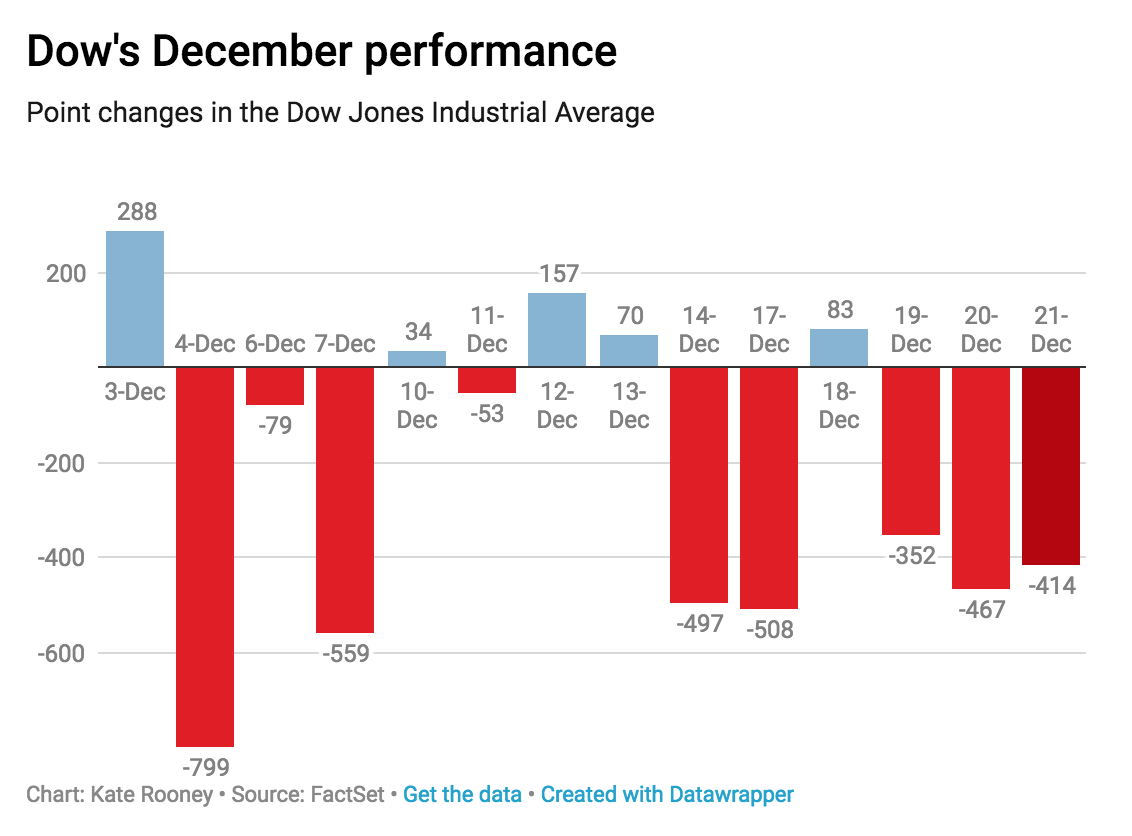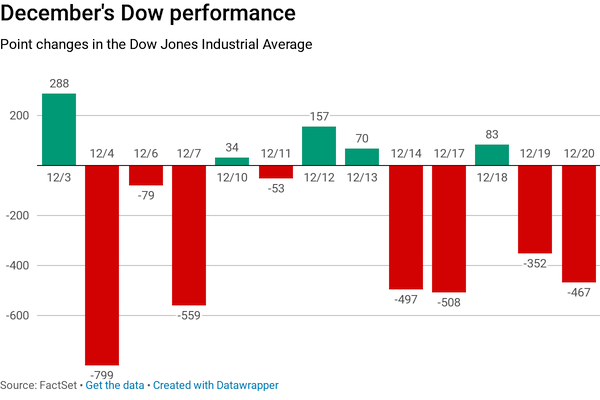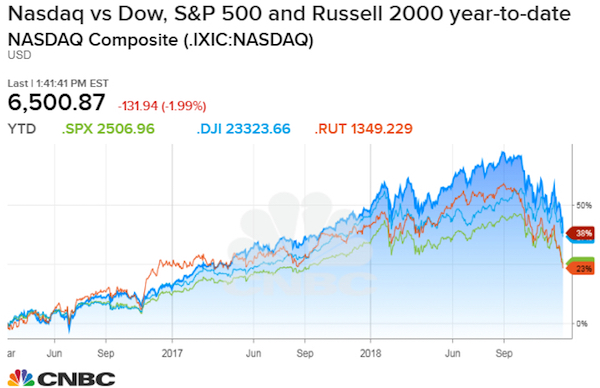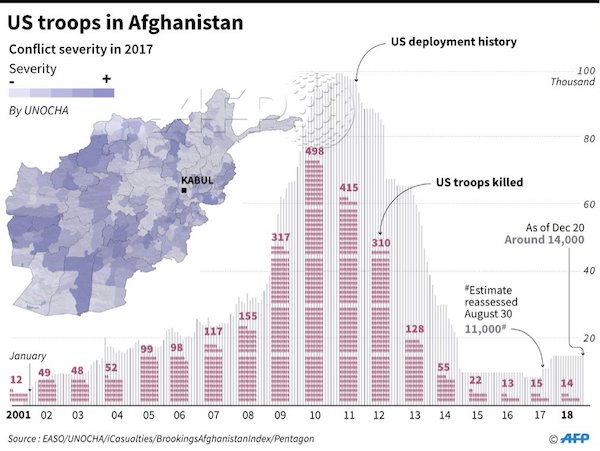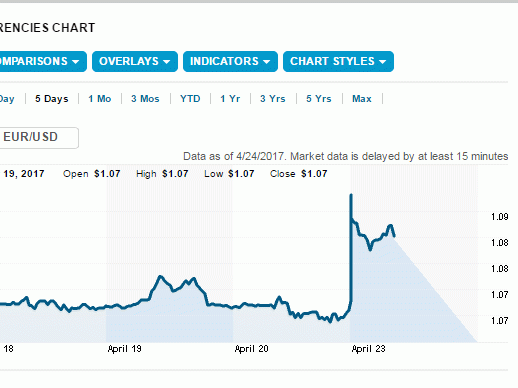
Jean-Léon Gérôme Truth Coming Out of Her Well to Shame Mankind, 1896

Feeling numb this morning, as I’m sure many of you do. Not only because Trump failed to pardon Julian Assange, though that is a major letdown, but also because it’s more obvious than ever that nothing has changed. The same cabal is either still in power or is returning to it. And now they’re going to clean the US from everyone who rejected them and supported Trump. For clickbait, power and revenge. And I’m a bit tired of reading it all.



Tucker Carlson: Mitch McConnell “sent word over to the White House: if you pardon Julian Assange, we are much more likely to convict you in an impeachment trial.”
https://twitter.com/i/status/1351353063433408515

@KimDotcom
Julian Assange will get his freedom back this year, pardon or not.

A mutation a week.
• Can We Stop a Super Coronavirus? (Spiegel)
Three different new mutants of the novel coronavirus have begun spreading at break-neck speed around the world. They have two things in common: a very specific mutation – and they are far more effective at infecting people than previous versions, with the new variants likely up to 56 percent more infectious. There are also worries that they could prove less susceptible to some vaccines and that people who have already had COVID-19 could get infected again. The cases that have been imported into the country so far demonstrate that it’s likely impossible to seal Germany off from the new variants. It’s probably just a matter of time before the super viruses begin spreading in Germany and Europe. And it’s quite possible that this has already happened.
For a long time, it seemed as if the world knew its enemy – a coronavirus that could be compared with its ancestor SARS and other coronaviruses like MERS. In small steps, we became more familiar with how the disease spreads and what we can do to best protect ourselves. We got to know the virus right down to the last molecule – so well that researchers were able to develop vaccines in record time, promising to help humanity out of the permanent lockdown. We would, it seemed, bring SARS-CoV-2 under control in 2021. Now, though, the virus is mutating – unfortunately in a direction that is likely to lead to many more victims. [..] German Chancellor Angela Merkel, who, as a physicist, has an in-depth understanding of numerical models, is deeply concerned about the current developments.
In recent days, she has been calling ministers, scientists and experts she trusts, asking for suggestions about what to do if the new virus mutants also spread in Germany. She doesn’t share the hope of some that the current lockdown can drive the numbers down any time soon. “Germany is facing eight to 10 very tough weeks,” Merkel said last Tuesday. The next day, during a meeting of her cabinet, Merkel discussed what would have happened had France not barred people from entering the country from Ireland. She said it might have become necessary for Germany to set up controls at the border with France.
[..] But the B.1.351 variant discovered in South Africa and the B.1.1.248 mutant found in Brazil and Japan are no less harmful than their British cousin. On the contrary. They contain another mutation in their genetic material – E484K – which could prove to be very dangerous. It’s likely that it weakens the human immune response – and could even render some of the newly developed vaccines less effective. Pharmaceutical companies are currently testing the efficacy of their vaccines against the new mutants. The mutation N501Y that is common to the new variants is located at a central position of the pathogen: on the spikes that are the source of the coronavirus’ name.
SARS-CoV-2 uses the spike protein’s receptor binding domain to latch on to the host cell and invade it. Scientists believe the mutation makes it easier for the virus to latch on to host cells. Once the new variants have infected the host, the disease proceeds just as it has in previous variants: They aren’t more lethal than the original coronaviruses. That, though, is hardly reassuring: Because the mutants are able to infect so many more people, they are capable of causing more fatalities than would a mutant that made people sicker but which was less contagious.


“..more infectious, and deadlier..”
• New COVID Strain Reportedly Emerging Within Brazilian Amazon (ZH)
As warnings about the hyper-infectious COVID strains first isolated in the UK and South Africa ring out across the US, Europe and, well, the rest of the world, too, at this point, authorities in Brazil fear they may have a new strain on their hands that’s more infectious, and deadlier, than anything the world has seen previously. According to a report published by Brazilian outlet Universo Online, a surge in cases and deaths, particularly among younger patients, in the hard-hit Amazonian city of Manaus (situated in northwestern Brazil, on the banks of the River Negro) has drawn the attention of health professionals working on the front lines of the pandemic in the hard-hit Latin American powerhouse.
Several officials with direct knowledge of the situation told UOL that a new “variant” – a mutated strain of the virus – may be responsible for harsher symptoms, and quicker onset times. But the most alarming shift has been a surge in deaths among younger people, who are dying now in greater numbers than in earlier waves of the outbreak in Manaus, which has long struggled with overburdened health-care resources. According to Manaus death records from the past 30 days cited by ULO, four out of ten deaths during that time involved patients under the age of 60 in the state.
The UOL analyzed the latest data Transparency Portal of the registry offices. There were 710 deaths in the state (since it may still increase), of which 285 were people under 60 years old – or 40.1% of the total. Before that period, this percentage was 36.5%. “Without a doubt many more young people are dying. We are not just talking about a risk group: this is in all age groups, affecting babies, children, teenagers even without comorbidity”, points out the infectologist Silvia Leopoldina, who also works in the state public networks and municipal of Manaus. The doctor says there were changes in the behavior of the disease in the state. “Before, the first symptoms of severity appeared around the tenth day onwards. Now there are patients who, with seven, eight days, are involved in 75% of both lungs.”.
One researcher told ULO that, while he couldn’t say for certain what it is, “something very different” is happening in Manaus right now. “Something very different is happening in Manaus. I don’t know if it is a new strain or if it is something different. But those on the front line are seeing an increase in the severity of the cases,” says infectologist and researcher Noaldo Lucena, who works in popular clinic, home care and public hospitals. The new infection and death numbers are so severe, he says, they go beyond the already known greater contagiousness of the new variant of the virus. “Clearly, we are facing an invisible being that is much more pathogenic and transmissible. Today whole families arrive with the symptoms at the same time, before it was one at a time.”

Clickbait dreams.
• The New Domestic War On Terror Is Coming (Glenn Greenwald)
The last two weeks have ushered in a wave of new domestic police powers and rhetoric in the name of fighting “terrorism” that are carbon copies of many of the worst excesses of the first War on Terror that began nearly twenty years ago. This trend shows no sign of receding as we move farther from the January 6 Capitol riot. The opposite is true: it is intensifying. We have witnessed an orgy of censorship from Silicon Valley monopolies with calls for far more aggressive speech policing, a visibly militarized Washington, D.C. featuring a non-ironically named “Green Zone,” vows from the incoming president and his key allies for a new anti-domestic terrorism bill, and frequent accusations of “sedition,” “treason,” and “terrorism” against members of Congress and citizens.
This is all driven by a radical expansion of the meaning of “incitement to violence.” It is accompanied by viral-on-social-media pleas that one work with the FBI to turn in one’s fellow citizens (See Something, Say Something!) and demands for a new system of domestic surveillance. Underlying all of this are immediate insinuations that anyone questioning any of this must, by virtue of these doubts, harbor sympathy for the Terrorists and their neo-Nazi, white supremacist ideology. Liberals have spent so many years now in a tight alliance with neocons and the CIA that they are making the 2002 version of John Ashcroft look like the President of the (old-school) ACLU. The more honest proponents of this new domestic War on Terror are explicitly admitting that they want to model it on the first one.
A New York Times reporter noted on Monday that a “former intelligence official on PBS NewsHour” said “that the US should think about a ‘9/11 Commission’ for domestic extremism and consider applying some of the lessons from the fight against Al Qaeda here at home.” More amazingly, Gen. Stanley McChrystal — for years head of Joint Special Operations Command in Iraq and the commander of the war in Afghanistan — explicitly compared that war to this new one, speaking to Yahoo News: “I did see a similar dynamic in the evolution of al-Qaida in Iraq, where a whole generation of angry Arab youth with very poor prospects followed a powerful leader who promised to take them back in time to a better place, and he led them to embrace an ideology that justified their violence. This is now happening in America….I think we’re much further along in this radicalization process, and facing a much deeper problem as a country, than most Americans realize.”

75 million voters. Burn them all down?
• Comey Calls For the Republican Party To Be “Burned Down” (Turley)
There is an interesting interview this week with former FBI Director James Comey. He states that he now believes that the infamous alleged “pee tape” may be real and makes other surprising statements while pitching his new book. One statement, however, stood out: “The Republican party needs to be burned down … It’s just not a healthy political organization.” Since the Republican National Committee was targeted with a pipe bomb in the recent riots, some could argue that this is incitement to arson or violence. I would not. I would call it free speech and hyperbole. The question is where the line is drawn given the impeachment of Donald Trump based on his speech and the allegations that others who used such hyperbolic language are actually guilty of incitement.
As I have previously stated, I condemned Trump’s speech in a series of tweets while it was being given and I called for a bipartisan vote of censure over his responsibility in the riots. However, I opposed the use of a snap impeachment by the House and raised concerns over the framing of the article of impeachment as an “incitement to insurrection.” Despite the chorus of legal experts insisting that the speech would constitute a strong case for criminal incitement (and the DC Attorney General said he may charge Trump), I believe such a prosecution would eventually collapse on free speech grounds if based solely on this speech and Trump’s other public statements.
Comey is not alone in the use of such rhetoric in today’s super-heated political environment. We previously discussed how conservatives have pointed to Rep. Maxine Waters (D-Calif.) calling for people to confront Republican leaders in restaurants; Rep. Ayanna Pressley (D-Mass.) insisted during 2020’s violent protests that “there needs to be unrest in the streets,” while then-Sen. Kamala Harris (D-Calif.) said “protesters should not let up” even as many protests were turning violent. They can all legitimately argue that their rhetoric was not meant to be a call for violence, but this is a standard fraught with subjectivity.

“Only satire is capable of doing poetic justice to what is, de facto, the Potemkin inauguration of a hologram.”
• Baghdad On The Potomac – Welcome To The Blue Zone (Escobar)
During the 2000s, I came face to face with Baghdad’s Green Zone multiple times. I always stayed, and worked, in the hyper-volatile Red Zone – as you may check in my 2007 book Red Zone Blues. We knew then that blowback would be inevitable. But still, we could never have imagined such a graphic simulacrum: the Green Zone fully replicated in the heart of imperial D.C. – complete with walls, barbed wire, multiple checkpoints, heavily armed guards. That is even more significant because it ends a full “new world order” geopolitical cycle: the empire started bombing – and cluster bombing – Iraq 30 years ago. Desert Storm was launched in January 17, 1991.
The Blue Zone is now “protected” by a massive 26,000 plus troop surge – way more than Afghanistan and Iraq combined. The Forever Wars – which you may now relieve through my archives – have come back full circle. Just like an ordinary Iraqi was not allowed inside the Green Zone, no ordinary American is allowed inside the Blue Zone. Just like the Green Zone, those inside the Blue Zone represent none other than themselves. And just like the Green Zone, those inside the Blue Zone are viewed by half of the population in the Red Zone as an occupying force. Only satire is capable of doing poetic justice to what is, de facto, the Potemkin inauguration of a hologram. So welcome to the most popular president in history inaugurated in secret, and fearful of his own, fake, Praetorian Guard. The Global South has seen this grisly show before – in endless reruns. But never as a homegrown Hollywood flick.
Meanwhile, trapped inside the Blue Zone, the White House has been busy compiling an interminable list of accomplishments. Multitudes will go berserk relieving the appalling foreign policy disasters, courtesy of American Psycho Mike Pompeo; debunking the official narrative partially or as a whole; and even agreeing with the odd “accomplishment”. Yet close attention should be paid to a key item: “Colossal Rebuilding of the Military”. This is what is going to play a key role beyond January 20 – as Gen Flynn has been extremely busy showing evidence to the military, at all levels, of how “compromised” is the new Hologram-in-Chief. And then there’s the rolling, never-ending November 3 drama. Blame should be duly apportioned. Impeachment, digital witch hunts, rounding up “domestic terrorists”, that is not enough. “Foreign interference” is a must.

“..everyone with a brain by now should be able to recognize that the government was never at a greater than 0% risk of being overthrown that day..”
• Media Cheers DC Under Military Occupation (Tracey)
Downtown Washington, DC is currently under what essentially amounts to military occupation. Streets are locked down, guarded by Army vehicles and blocked off by huge, garish checkpoints. Vehicular traffic is limited to motorists who can show papers demonstrating that, as one Guardsman told me, they are conducting “legitimate business.” (Apparently this includes Uber drivers and food delivery workers.) According to official estimates, 25,000 military personnel are now deployed to the area — on top of countless federal, state, and local law enforcement agents. Troops roam around carrying rifles with no ammo loaded. If you can manage to navigate on foot to the perimeter of the National Mall, you encounter an enormous fencing apparatus, complete with barbed wire.
Question: does anyone with a media job find this situation to be worthy of some further inquiry? Or in other words, worthy of questioning the premise of why such an extravagantly intensive military presence is allegedly necessary? Is it proportionate to the scale of the purported threat? Has the nature of the threat itself — whatever that might be, exactly — been adequately probed to determine whether it is grounded in reality? Already a bunch of purported threats initially trumpeted across the media with the usual five-alarm-five hysteria have dissipated in short order, so there is perhaps some reason for doubt in that regard. Instead of applying a modicum of skepticism to this gigantic show of military force, much of which appears to be “security theater” in its purest form, our vaunted media is doing little other than cheering it on.
And of course, inflating the threats being cited as justification for it. They can repeat over and over again that what occurred on January 6 at the Capitol was an “attempted coup,” and therefore everything and anything is justified to retaliate, but everyone with a brain by now should be able to recognize that the government was never at a greater than 0% risk of being overthrown that day. Fear-inducing terms like “insurrection,” “domestic terrorism,” “seditious conspiracy,” “armed rebellion,” and others have been marshaled intentionally to inure the public to extreme actions such as the swiftly-executed corporate censorship purge and now, the transformation of the country’s capital into a military fortress.

Caravans are on their way, programs installed for large scale pardons. In a pandemic.
• Biden’s DHS Pick To “Study” Whether To Keep Trump’s Border Wall (PFW) /span>
On the same day Trump extended an emergency declaration at the southern border, Biden’s pick for secretary of the Department of Homeland Security, Alejandro Mayorkas, says that he will “study” whether the border wall constructed under the Trump administration will remain in place. “President-elect Biden has committed to stop construction of the border wall. It would be my responsibility to execute on that and I have not looked at the question of what we do with respect to the wall that has already been built,” Mayorkas said Tuesday during his Senate confirmation hearing. “I look forward to studying that question, understanding the costs and benefits of doing so, being open and transparent with you and all members of this committee, sharing my thoughts and considerations and working cooperative with you toward a solution,” he said.
The incoming DHS Sec. says that he plans to work on “harnessing innovation and technology” for future border security as he believes a border wall may not be the most effective way to stop people from entering the country. President-elect Biden has stated that he would not construct “another foot” of border wall between the U.S. and Mexico when he assumes office. “There will not be another foot of wall constructed on my administration, No. 1,” Biden said in August. “I’m going to make sure that we have border protection, but it’s going to be based on making sure that we use high-tech capacity to deal with it. And at the ports of entry — that’s where all the bad stuff is happening,”
As we highlighted earlier, President Donald Trump on Tuesday extended his declared emergency at the southern border to be in effect until February 2022. The order set in motion funding for the now 453 miles in length southern border wall after congress had folded on devoting money to the project in 2019.


Back to normal.
• US Bombs Somalia After Troop Withdrawal (Antiwar)
After announcing that the troop withdrawal from Somalia was completed on Sunday, the US carried out multiple airstrikes in the African country on Monday and Tuesday. On Monday, US Africa Command (AFRICOM) said it launched an airstrike on a compound belonging to al-Shabab and did not report any casualties. On Tuesday, AFRICOM said it carried out two airstrikes in the vicinities of Jamaame and Deb Scinnele, Somalia, that killed three al-Shabab “operatives” with no other reported casualties. AFRICOM usually claims no civilians are killed in its Somalia airstrikes, but whenever journalists or human rights groups make it to the scene of a US airstrike in the country, they tell a much different story.
The airstrikes were likely a message to al-Shabab that despite the troop withdrawal, the US can still carry out airstrikes in Somalia. About 700 US troops were pulled out of Somalia, with many of them being shuffled around East African to neighboring Djibouti and Kenya, where the US drones are based that bomb al-Shabab. President Trump started sending troops to Somalia in 2017 and significantly escalated the drone war by loosening the rules of engagement. In 2020 alone, Trump bombed Somalia more than George W Bush and Barack Obama combined.

Unintended consequences of ultra-low rates?! Dutch 10-year bond yields are -0.4%, Chinese 3%.
Under these circumstances, how much newly minted stimulus money will disappear into China?
• Pension Funds Plot Move On China’s $16 Trillion Sovereign Bond Market (R.)
China’s $16 trillion sovereign debt market is the proverbial elephant in the investment room. But it’s becoming too big to ignore, even for the most risk-averse Western investors. A large, A+ rated market that pays 3% yields, with minimal volatility? It’s looking increasingly alluring for European pension funds swimming in sub-zero bond yields as aging populations stretch their finances. For some, the benefits are beginning to outweigh the political risks, and they are upping allocations to China, or considering doing so, according to Reuters’ interviews with half a dozen firms that advise and manage money for pension funds.
“Not all our clients invest in China’s bond market, but they are all looking into it,” said Sandor Steverink, head of Treasuries at APG, which manages a third of the assets of the 1.5-trillion-euro ($1.8 trillion) Dutch pension industry. Dutch 10-year bond yields are languishing at around -0.4%, spelling losses for any investor who holds them to maturity, a picture reflected across Europe. Such fund interest is a boon for Beijing, which is seeking to internationalize its financial markets and lure big-ticket overseas investors as its once-mighty trade surpluses dwindle. Europe’s pension industry alone is worth $4 trillion. China’s sovereign debt market is the world’s second-largest after the United States. Yet while foreigners own a third of the U.S. Treasury market, they hold just 9.7% of China’s sovereign debt, according to government data.

“But doesn’t the problem run deeper than that? Does it not lie with the social media firms’ business model, which seeks to monopolize users’ attention to the benefit of their clients who advertise on their platform?”
• Taming The Social Media Monster (K.)
Western democracies must win back control of the boundaries of public debate from social media giants, Marietje Schaake suggests in an exclusive interview with Kathimerini. Schaake, a former member of the European Parliament, is now international policy director at Stanford University’s Cyber Policy Center and international policy fellow at Stanford’s Institute for Human-Centered Artificial Intelligence. She spoke to Kathimerini about outgoing US President Donald Trump, the digital footprint of the European Union, and how public policy can tame the monster that social media has turned into. Trump’s social media ban, Schaake tells the newspaper, “made many people realize the actual power of Twitter, Facebook, YouTube and other platforms.” The companies’ decision raises “many questions,” she says.
“Why, for example, did they ban the American president but not other international leaders that post very controversial or harmful content?” However, Schaake says, “the real question is not whether this was a good or bad decision, but why we allow privatized governance of our democratic debate.” How can the public sphere reassert control over this debate? “We must first of all demand that these firms be much more transparent with the policies on which their decisions are based. These [policies] cannot be a response to pressure or to outcry coming from their own employees. These policies must hinge on international or European standards regarding the freedom of speech and its limitations; and there must be independent monitoring that will certify the degree to which these companies fulfill their commitments.
“I was struck by the fact that Twitter has since January 8 deactivated more than 70,000 accounts associated with the QAnon [far-right conspiracy] – and that this happened after QAnon had been banned.” According to Schaake, this shows how hard it is to monitor a platform’s content on a rolling basis, as offshoots of banned groups keep coming into being. “The governments of democratic states must have a strong say in this,” says Schaake. “They must clarify what the rule of law means in the digital world and make sure that there are mechanisms in place to enforce it,” she says. She says authorities must have access to algorithmic methodologies and decide on clear sanctions against firms that fail to comply. “Regulatory authorities must have the knowledge, the staff and the resources they need to deal with the armies of lawyers that the companies bring to the table,” she says.
But doesn’t the problem run deeper than that? Does it not lie with the social media firms’ business model, which seeks to monopolize users’ attention to the benefit of their clients who advertise on their platform? Schaake does not challenge the claim. However, she stresses that if the situation has spun out of control, it is “due to a long period of basic inaction on the part of democratic governments, particularly in the US.” Bringing the anarchic landscape under control, she says, presupposes immediate action on a series of fronts: anti-trust policy, protection of privacy, personal data, and so on.

“..a temporary condition..”
• Liberals Traumatized by Agreeing with Mitch McConnell (Borowitz)
Millions of liberals were traumatized on Tuesday when they found themselves in agreement with Mitch McConnell, liberals are reporting. From Santa Monica, California, to the Upper West Side of Manhattan, liberals sought emergency counselling, complaining of a range of symptoms after realizing that they were on the same side as the senator from Kentucky. Carol Foyler, a liberal from Austin, Texas, said that she experienced lightheadedness and nausea after liking a Facebook post that detailed McConnell’s remarks in the Senate. “The room started spinning,” she said. Dr. Davis Logsdon of the University of Minnesota Medical School said that liberals who are traumatized by agreeing with McConnell should “not be concerned” and should recognize that it is a temporary condition. “They’re not going to wake up tomorrow and start agreeing with Devin Nunes,” he said.

We try to run the Automatic Earth on donations. Since ad revenue has collapsed, you are now not just a reader, but an integral part of the process that builds this site. Thank you for your support.



Support the Automatic Earth in 2021. Click at the top of the sidebars to donate with Paypal and Patreon.




